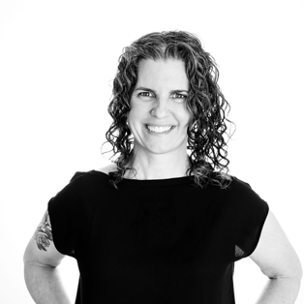Vicky’s Valuable Pearls

Job Interviews
If you’ve listened to our audio series, you’ll know there are several things that make my palms start to sweat. Presentations on rounds. The first day of a new clinical rotation. Mariachi bands. Well, here’s another one: job interviews.
You may have experience with job interviews from a previous career or from the summer job you had in college. But for some reason, the stakes feel a little higher when you’re interviewing for your first job out of PA school. The job interview is a key part of the hiring process. If you’ve been offered an interview, then the hiring manager clearly thinks you’re qualified for the job, based on your resume. The real purpose of the interview is to see if you’re a good fit for the practice or group. Can they see you getting along with everyone else on the team? Do you fit the organization's mission and values? Equally as important, it’s a great opportunity for you to see if the group or practice is a good fit for you.
Practical tip for your first PA job interview:
- Practice, practice, practice! There are some “standard” interview questions that are asked frequently, regardless of the job you’re applying for. So be prepared to answer those. Common ones include: “What are your strengths and weaknesses?”, “Why do you want this job?”, and the dreaded “Tell me about yourself”. There are also some common questions that are asked specifically for PA jobs. Be prepared to answer things like “How has your experience prepared you for this job?” “How do you deal with conflict?” I asked a group of working PAs about questions they were asked during interviews and compiled a list. It, of course, is not comprehensive but has some good ones to think about your possible answers. Sample Interview Questions I found that writing those answers down on a piece of paper helped me to think through what I would say. Then, role play the interview with a friend, partner, or roommate. You should practice, but don’t sound too rehearsed during the interview.
- Do your research and have questions prepared. Inevitably you’ll be asked “What questions do you have for us?” Don’t say “Hmmm...I don’t think I have any”. Employers like it when you ask questions of them. This is not your chance to ask a bunch of HR questions (eg, what’s your retirement package), but a chance for you to show that you’ve done your research and that you would make an interesting and interested colleague. Some questions you may want to ask include: “What is the call schedule?”, “Have you ever hired a new grad PA before?”, or “What are the practice’s goals over the next few years and how can I help fulfill those?” My husband is in academia and his question to potential employers was this: “Say I get hired and 2 to 3 years down the road, you’re looking back and thinking to yourself “Wow, Matt’s done an amazing job. What is it specifically that I’ve done in the past 2-3 years that was such a home run?” Feel free to steal that one (just make sure to replace Matt’s name with your own).
- Dress to impress, but keep it simple and professional. Whether you like it or not, the interviewer will notice how you present yourself before you’re able to get any words out of your mouth. Make a great first impression by coming across as polished, professional, and confident. Wear professional clothing (a well-fitted suit for males and a pantsuit or skirt, blouse, and suit jacket for females) and keep your jewelry and shoes simple. Make sure your clothes are ironed. Interview day is not a time to bust out your nicest jewelry or highest heels. One way you can stand out is by wearing something a little more colorful than the traditional white shirt (or a bold colored tie for males). Do not wear scrubs or your white coat! Carry a professional looking briefcase or work bag, which should contain a few copies of your resume, your references, and a notepad for taking notes. Also, remember that many people are sensitive to strong smells, so it is advised not to wear strong cologne or perfume for an interview.
- Don’t forget about your non-verbal communication. Maintain eye contact and good posture during the interview. Smile. Be an active listener and appear engaged in the conversation.
- Many times job interviews will include an informal dinner or lunch with a group. This is a great opportunity for you to get to know the group. The people present at these events are there to get a sense for how you might fit into the group. Would you get along with everyone? Do you fit the culture? Are you easy to get along with and does conversation come naturally? One question that comes up frequently is whether or not to have a glass of wine, beer, or a cocktail at one of these events. Stay true to yourself and read the room. If everyone else is having a beer, I think it’s fine. But limit yourself to 1.
- Follow up the following day with a thank you email. Something that is short and sweet.
Best of luck on your first job interview! You’ve worked so hard to come to this point...you’re going to do great. Remember you can always reach out to us with any questions at pa@hippoeducation.com.
AAPA Resources
Practice-Changing Education
Experience education that goes beyond theory. Explore Hippo Education’s offerings below.


